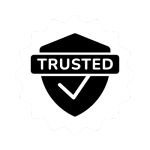Introduction
Have you ever wondered why some websites appear at the top of a Google search while others are buried on page 10? That’s where SEO, or Search Engine Optimization, comes in. If you’re just starting with SEO, don’t worry! In this guide, we’ll break it down step-by-step so you can understand what SEO is, why it matters, and how it can help your website grow.
What is SEO?
SEO stands for Search Engine Optimization. It’s a process that helps your website appear higher in search engine results, like Google or Bing, when people search for terms related to your business. The higher your website ranks, the more likely people are to find it. Think of SEO as the process of making your website more “search engine-friendly,” so search engines will want to show it to people.
Example: If you have a website that sells organic coffee, SEO can help your site appear at the top when someone searches for “buy organic coffee online.”
Why Does SEO Matter?
- Increases Website Traffic
- SEO helps bring people to your website. When your site appears at the top of search results, it gets more clicks, which means more visitors.
- Builds Trust and Credibility
- High-ranking websites are often seen as trustworthy by search engines and users alike. When people see your site on the first page, they’re more likely to trust your brand.
- Improves User Experience
- SEO isn’t just about keywords and search engines; it’s about creating a better experience for your users. This includes faster loading times, mobile-friendly design, and relevant content, which keeps visitors on your site longer.
- Drives Long-Term Results
- Unlike paid ads, which disappear when you stop paying, SEO efforts can last for months or even years. Once your website starts ranking well, you’ll continue to get traffic without constantly paying for ads.
How Does SEO Work?
SEO may seem complex, but it breaks down into a few main parts:
- Keyword Research
- Keywords are the words and phrases people type into search engines. Finding the right keywords for your website helps you target what your potential customers are searching for.
- On-Page SEO
- This focuses on optimizing parts of your website you control, like content, headers, meta descriptions, images, and internal links. Good on-page SEO helps search engines understand what your website is about.
- Off-Page SEO
- This is about building your website’s reputation through external sources, such as other websites linking to yours. When a trusted site links to yours, it’s like a vote of confidence that your website is trustworthy.
- Technical SEO
- Technical SEO covers things like site speed, mobile-friendliness, and secure connections (HTTPS). These aspects make your website more accessible and easy to navigate, which can improve its ranking.
The Benefits of SEO for Your Website
SEO can transform your website and brand in a few key ways:
- More Visitors, More Leads
Higher rankings mean more visitors to your site, which means more chances to convert visitors into customers. - Cost-Effective Marketing
Unlike paid ads, which stop working once you stop paying, SEO keeps bringing visitors over time, making it a more cost-effective marketing strategy. - Competitive Advantage
Many businesses are already using SEO, and getting started can give you an edge over competitors who aren’t optimizing their sites.
Getting Started with SEO
If you’re ready to get started with SEO, here are a few simple steps:
- Identify Your Keywords
Start by researching keywords related to your business. Tools like Google Keyword Planner or Ubersuggest can help you find relevant keywords. - Optimize Your Content
Make sure your content is clear, engaging, and uses your chosen keywords naturally. Avoid keyword stuffing (overusing keywords) because it can hurt your rankings. - Make Your Site User-Friendly
Ensure your website is fast, mobile-friendly, and easy to navigate. User experience is crucial in SEO! - Build Backlinks
Try to get other reputable websites to link to yours. This can be done by reaching out to bloggers, getting listed in directories, or creating shareable content. - Track Your Progress
Use tools like Google Analytics or Google Search Console to see how your site performs. Tracking your progress helps you see what’s working and where you can improve.
Conclusion
SEO might seem overwhelming at first, but it’s one of the most effective ways to get more visitors to your website. By understanding what SEO is and why it matters, you’re already on the path to growing your online presence. Take it step-by-step, focus on creating quality content, and make your website user-friendly. Soon, you’ll start seeing results and enjoying the benefits of SEO for your business!


